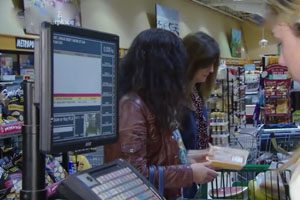
Food From Cloned Animals Is Getting Closer To Store Shelves. Food from cloned animals is getting closer to grocery store shelves in both Europe and the United States. And while regulators on both sides of the Atlantic have given food from cloned animals a clean bill of health, many consumer advocates fear the unknown health […]

Food From Cloned Animals Is Getting Closer To Store Shelves. Food from cloned animals is getting closer to grocery store shelves in both Europe and the United States. And while regulators on both sides of the Atlantic have given food from cloned animals a clean bill of health, many consumer advocates fear the unknown health consequences of cloned food.
The European Union (EU) announced Friday that cloned food products are safe to eat. Last March, the European Commission—the executive branch of the EU—asked the European Food Safety Authority (EFSA) to assess possible implications of cloning for food safety, animal health and welfare, and environment in the European bloc. In its first response, the EFSA said it “is very unlikely that any difference exists in terms of food safety between food products originating from clones and their progeny compared with those derived from conventionally bred animals,” adding that “no environmental impact is foreseen as a result of animal cloning.” The EFSA opened a consultation process with member states and industry until February 25 prior to handing in its final opinion in May; the Commission’s ethics committee is scheduled to publish its view next week. “We take food safety very seriously, so we must wait for these opinions and then we will also look at our survey of public opinion in the 27 member states later this year before making any assessment,” Markos Kyprianou, spokeswoman for EU Health Commissioner, said.
Using the process, genes from an animal with desirable characteristics are inserted into an unfertilized egg that can grow into an exact duplicate of the parent. The procedure is meant to produce meatier animals better able to resist diseases; however, cloning produces a high proportion of deformed animals unable to survive, although scientists with the EFSA said these rates were likely to decline as technology improved. Advocates argue that that humans would not suffer because unhealthy clones would be excluded from the food chain, as is the case with conventionally bred animals.
Many consumer and religious groups strongly oppose cloning, which takes cells from an adult and fuses them with others before implanting them in a surrogate mother, saying that scientists don’t know the full effects of cloning on nutrition and biology. Cloning advocates argue that cloning will help produce more milk and lean, tender meat by creating more disease-resistant animals, insisting the technology is safe.
If the technology receives EFSA approval, cloned food products could be in supermarkets across the 27-country bloc in the next couple of years. With over half of the shoppers recently surveyed by the International Food Information Council saying they were unlikely to buy food made from cloned animals, consumers clearly need more assurances.
Friday’s decision was particularly important because the U.S. Food and Drug Administration (FDA) gave its backing to meat and milk products from cloned cattle, pigs and goats, prompting EU authorities to act. Hundreds of animals have been cloned mainly in the United States, but the Commission believes cloning is likely to develop both in the EU and internationally. Britain and Germany are leading the push to allow cloned products to be sold in the EU and London and confirmed it has imported a cloned offspring. The FDA is expected to rule this month on the safety of products clones and to conclude the products are safe, allowing commercial production of such products to move forward.
The personal injury attorneys at Parker Waichman LLP offer free, no-obligation case evaluations. For more information, fill out our online contact form or call 1-800-YOURLAWYER (1-800-968-7529).


